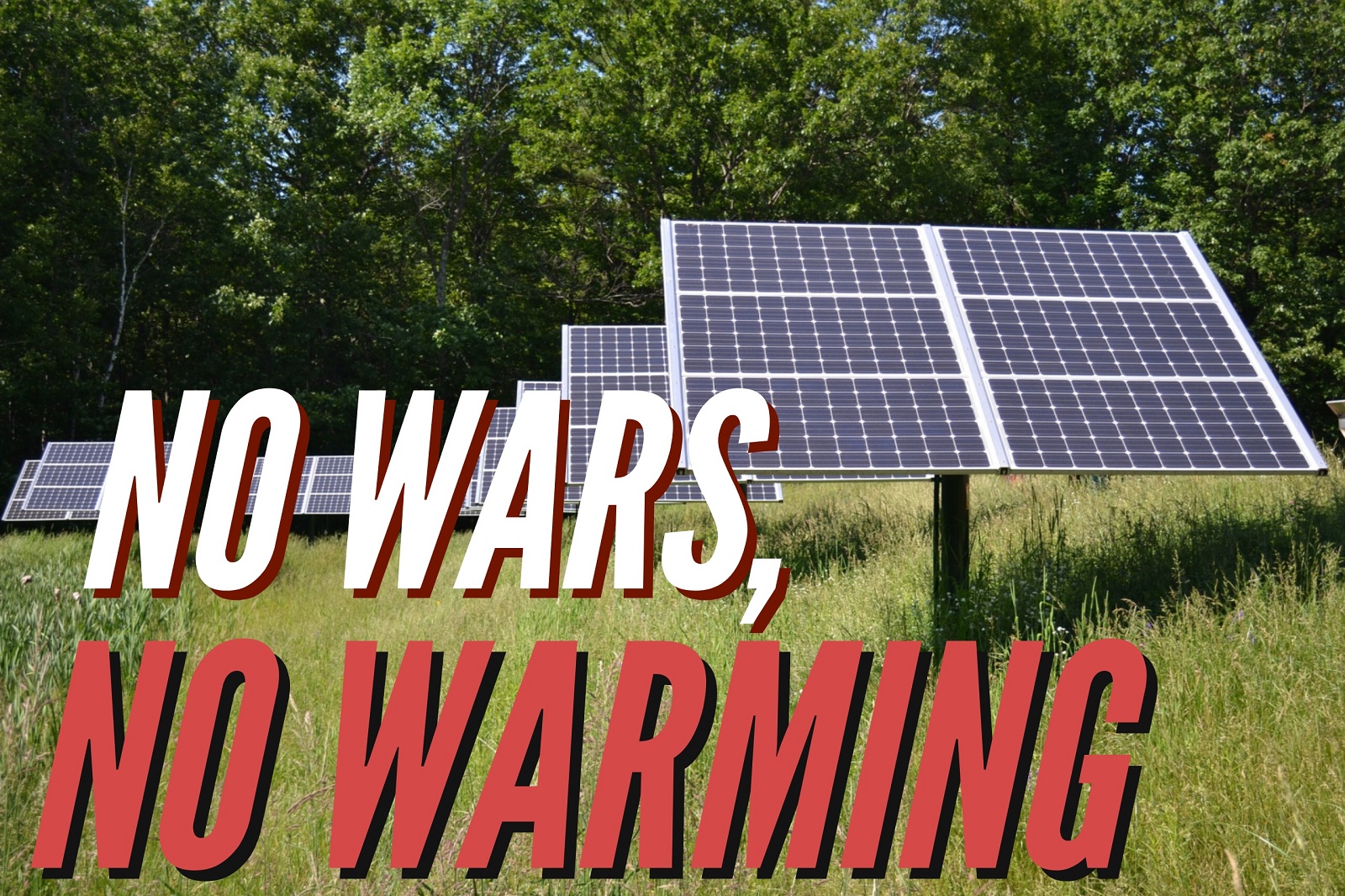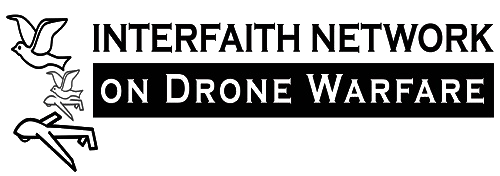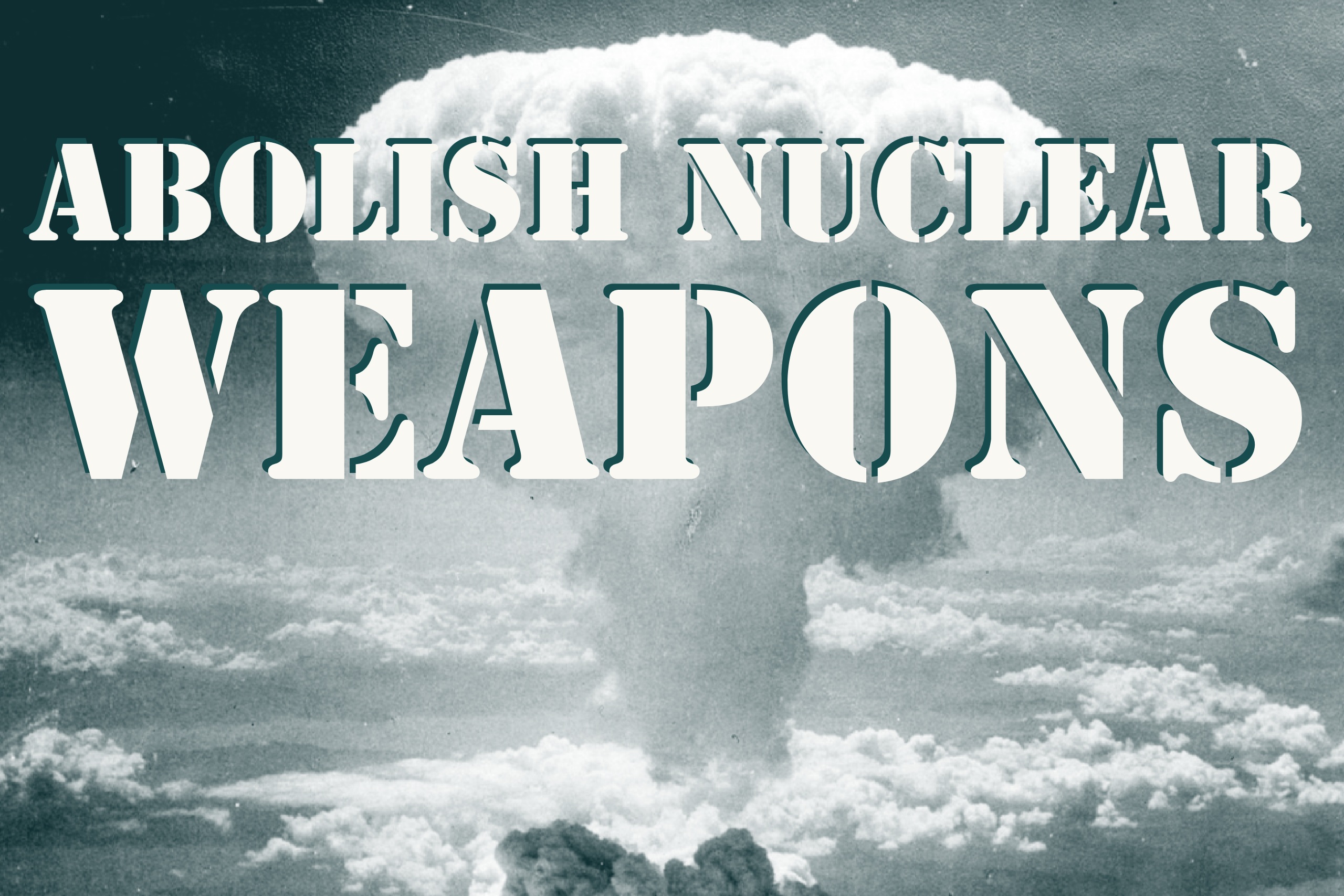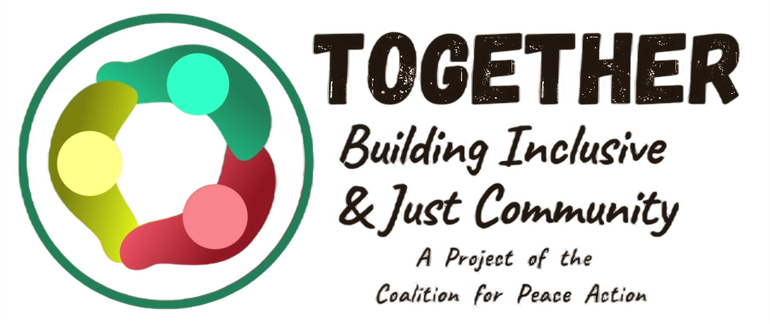Letter to the Editor by Voting Integrity Task Force Chair, Stephanie Harris
Mercer County Announces New Voting Machine Purchase
To the Editor:
After years of intense study, Paula Sollami Covello, Mercer County Clerk, announced that Mercer County will change to vote by hand marked paper ballots to be counted by optical scan machines to tabulate them.
The Coalition for Peace Action (CFPA) applauds the decision to replace the aging, insecure, paperless, unauditable, electronic voting machines with the most secure, least expensive option. To date, Essex County is the only other New Jersey County that has gone this route.
The 2022 election will determine who controls the Congress and Senate. At least one New Jersey Congressional seat was decided in 2020 by a very narrow margin, less than 1%. It is imperative to have paper ballots to audit and to verify election results. Ballots marked by the hand of the voter are the most secure.
CFPA urges all New Jersey counties to follow the lead of Mercer and Essex Counties and vote entirely by hand marked paper ballots. These can be rapidly counted by optical scan machines. Importantly, if questions or disputes arise, as happened in the very close 2020 Presidential race in Georgia, a hand recount of all ballots will reliably resolve the issue.
CFPA has been advocating for 17 years to decommission the paperless electronic machines and switch to hand marked paper ballots. Mercer and Essex Counties have taken bold steps to secure the accuracy and ability to do accurate recounts of their election results and are to be congratulated!
Signed,
Stephanie Harris
Chair of Task Force on Voting Integrity
Coalition for Peace Action
"Historic audit of N.J. mail-in election is complete. The results are promising, officials say." -- NJ.com, Steve Strunsky, Jan. 25, 2021
More than 6.2 million paper ballots were sent to registered voters for Nov. 3 races ranging from school board to president, and 4.4 million were returned and counted.
But despite the extraordinary nature of the mail-in balloting, the Nov. 3 election was certified as accurate by election officials in all 21 New Jersey counties, including the 14 carried by President Joe Biden, the Democratic challenger who was sworn in Wednesday, and the seven by former President Donald Trump, the Republican incumbent.
Non-partisan observers applauded the election for its accuracy and transparency, as well as for keeping voters, poll workers and others safe amid a pandemic that has now taken the lives of more than 20,500 people in New Jersey.
“The ballots also provided an auditable paper record and we are seeing that the vote count is really accurate,” New Jersey League of Women Voters Executive Director Jesse Burns wrote in an email. “Voters can have confidence in the security and accuracy of this election.” (Click here to continue reading article.)
Click here to print & share a fact sheet on hand-marked paper ballot voting!
Contact Gov. Murphy and demand he issue an Executive Order for hand-marked paper ballots, optical scan machines, and ballot-marking devices for the disabled.
"Reliability of Pricey New Voting Machines Questioned," AP News, by Frank Bajak, Feb. 23, 2020
"Nearly 1 in 5 U.S. voters will cast ballots this year on devices that look and feel like the discredited paperless voting machines they once used, yet leave a paper record of the vote. But computer security experts are warning that these so-called ballot-marking devices still pose too much of a risk.
They cost at least twice as much as hand-marked paper ballots, which computer scientists prefer because paper can’t be hacked. That’s an important consideration as U.S. intelligence officials warn that malicious meddling in this year’s presidential contest could be worse than in 2016.
Some of the most popular such devices, from Election Systems & Software and Dominion Voting Systems, register votes in bar codes that the human eye can’t decipher. That means skilled hackers could alter outcomes without detection, gaming bar codes while keeping voters’ intended choices on the human-readable portion of the ballot printout, computer scientists have found.
Even on machines that don’t use bar codes, voters may not notice if a hack or programming error mangles their choices. A University of Michigan study determined that only 7 percent of participants in a mock election notified poll workers when the names on their printed receipts didn’t match the candidates they voted for." (Click here to read the full article.)
"NJ Should Learn From Iowa Debacle," Princeton Info, by Stephanie Harris, Feb. 12, 2020
"We have learned several important lessons from the debacle in Iowa: always have a paper ballot that can be recounted in an emergency and can be audited to assure the accuracy of the tabulating machines; use the least amount of technology for voting to minimize machine errors and potential hacks; create the most secure and resilient voting system to give voters confidence in election results.
Unfortunately, New Jersey fails on all counts. Using paperless, aging, insecure machines can lead to failed elections. We must take action now, before it is too late, to make sure that the June primary and November presidential elections create an accurate record of voters’ intent. Contact your county officials and demand hand-marked paper ballots and optical scan tabulating machines (the most secure and least expensive voting system)!
In 2005 the legislature passed a law requiring voter verified paper ballots and in 2008 a law requiring post-election audits. Neither law was implemented because of lack of funds. The federal government has awarded New Jersey $11 million for election security.
Tell Governor Murphy that this money should be used to purchase optical scan machines for New Jersey to enable implementation of the existing laws!" (Click here to read the full article.)
Letter to the Editor on Iowa Caucuses, by the Rev. Robert Moore & Stephanie Harris, Feb. 5, 2020
(This letter has been submitted to papers in the region.)
Dear Editor,
How fortunate that there was paper back-up of the Iowa Caucus results that could be recounted! Had an election disaster occurred in New Jersey, there would be no way to do a recount since we don’t use paper ballots. New Jersey lacks the resilience to continue an election in the face of hacked or broken machines, an electrical failure, or any software failure as happened in Iowa.
If it was realized in time, voters would have to resort to paper emergency ballots. So why not adopt paper ballots as the voting system of choice?
There are two ways voters can mark paper ballots: by hand or by machine. Recently there was a debacle in Northampton County, PA with the electronic ballot marking device (an “all-in-one" hybrid) that yielded false results. Now there is a lawsuit in PA to decertify this machine because it can be inaccurate. Unfortunately, Union County has just purchased this expensive system.
Election security experts agree that hand marked paper ballots tabulated by optical scan machines is the most secure, least costly voting system. Its accuracy is highly reliable when coupled with a random audit. In 2005 the NJ Legislature mandated a voter verified paper ballot, and in 2009 they mandated an audit. But both laws were postponed indefinitely until federal or state money becomes available.
Now Congress has appropriated funds, allocating $11 million for New Jersey that could be used to purchase optical scan machines for all counties that currently vote on paperless machines. Virginia transitioned to optical scan voting systems in two months, so there is still time before the June Primary.
Essex County recently ordered optical scan machines and expects that their new system will be ready for the April School Board election. Readers are urged to contact Gov. Murphy and demand he issue an Executive Order to mandate and fund hand marked paper ballots and optical scan machines to secure the most important election of our lifetime!
We have been warned about foreign and domestic interference in the 2020 election, and we must be prepared to face this challenge in order to have a secure election that will unquestionably yield accurate results. Act now, or our democracy may not survive!
"Democracy demands a secure voting machine. Only 1 county in NJ has managed to do this so far." - Op-Ed by Mary Pat Gallagher, NJ.com, Feb. 2, 2020
"When Essex County residents go to the polls in November to vote for president, they will use a new voting system, the most secure kind currently available. They will mark their choices by hand on paper ballots and feed them into optical scanners, a process that is less vulnerable to tampering and if tampering does occur, is far easier to detect. On Jan. 7, Essex County freeholders voted unanimously to purchase the new system, which is expected to be used as early as the school board elections in April.
That’s the good news. The bad news is that Essex is the only county in the state expected to have such a system in place this year. Almost all the others use touch screen machines that are entirely digital and produce no paper trail whatsoever. That means the vote could be hacked and there would be no way to even know it occurred, never mind conduct a recount or an audit. We are one of only a handful of states that still rely almost entirely on paperless voting." (Read full piece by clicking here.)
Click here to read our letter to Mercer County, urgently requesting hand marked paper ballots, precinct based optical scan tabulating machines, and ballot marking devices for the disabled.
"A Pennsylvania County’s Election Day Nightmare Underscores Voting Machine Concerns," New York Times, by Nick Corasaniti, Nov. 30, 2019
"In an era where some candidates and incumbents try to challenge or discredit a close loss by questioning the system, either with unfounded allegations of voter fraud or claims of a “rigged” election, the proper functioning and security of election machines have never been more crucial.
“There are concerns for 2020,” Ms. Snover said, questioning whether the paper ballots generated by the same machine that had a digital error could be trusted. “Nothing went right on Election Day. Everything went wrong. That’s a problem.”
Election Day here had been marred by complaints of long lines, glitch-prone touch screens and frustrated poll workers. Voters across the county said the experience further eroded their already shaken confidence in the election process.
“It made me sad because with everything that’s going on, you kind of worry about: Was something tampered with, or was it just a mistake,” said Michelle Broadhecker, 48, of Easton, who said her anxiety about elections began after 2016. “There’s just too much going on that you worry about those things. And you don’t want the wrong people in the wrong places.”" (Read full article here.)
"Longtime Russia expert Fiona Hill warned in her testimony in the impeachment inquiry that the Russians are going to hack into the 2020 election.
In 2018, the Democrats won almost all of the congressional seats in New Jersey, some by a very thin margin. The Republicans have vowed to take back those seats, so 2020 will see hard-fought races and potentially close elections. Because most of New Jersey votes on touchscreen machines without paper, a recount or audit is impossible. We will not be able to identify any hacking of the machines, foreign or domestic, and the machines themselves are very old and subject to breakdown or errors.
For 15 years, the Coalition for Peace Action has been calling for a transition to hand-marked paper ballots, optical scan machines to tabulate the votes, and ballot-marking devices for the disabled.
Neither Republican nor Democratic administrations have heeded this call, even though Gov. Phil Murphy made a signed campaign pledge to fund paper ballots and optical scan machines. It is time for the governor to fulfill his campaign promise.
I urge all those concerned to contact the governor and their county freeholders and demand hand-marked paper ballots for the 2020 primary."
- Stephanie Harris, Hopewell; chair, Voting Integrity Task Force, Coalition for Peace Action
Click here to see Gov. Phil Murphy's 2017 Candidate Questionnaire, where he indicated his support of state-wide paper ballots.
"Mercer’s Voting Machines: Old, Hackable, and Not Going Anywhere," by Rob Anthes, Front Page of U.S.1, Oct. 30, 2019
This past summer the U.S. Senate Select Committee on Intelligence released a report on the Russian government’s attacks on America’s election infrastructure. The report said there was an urgent need to secure America’s voting machines. It recommended states replace outdated and vulnerable machines with, at least, a voter-verified paper trail and to begin conducting statistically sound audits.
But in many New Jersey counties that won’t happen.
“It’s our feeling that the 2020 election will be one of the most important of our lifetimes, and New Jersey will be voting on a very, very vulnerable system,” said Harris, who now serves as chair of the Coalition for Peace Action’s voting integrity taskforce. “The whole thing is extremely frustrating.” (Click to read full in-depth article.)
Click here for a great resource on voting security - works by Andrew Appel, Professor of Computer Science at Princeton University.
(2018) New Jersey Government officials have failed to protect our vote in November by refusing to allocate funds for new paper ballot voting machines. New Jersey is one of only five states that have paperless voting machines that are insecure, vulnerable to hacking, and prevent a recount or audit because of a lack of voter-marked paper ballots for every vote cast. Security experts have cited this as a “national security threat.”
Show them that voters demand voter-marked paper ballots to protect our vote!
The only way for voters to cast a paper ballot that can be independently audited or recounted is to request a mail-in paper ballot. Ask your County Clerk to send you an application, or go to the Clerk’s office in person to obtain one. Fill out the ballot, and either mail it to or walk it into the County Board of Elections. Act now before it is too late and we lament another stolen election!
"America's Elections Could Be Hacked. Go Vote Anyway," New York Times Editorial Board, October 19, 2018
"The key fixes are relatively simple, and everyone agrees on what they are.
One, provide a paper trail for every vote. Hackers work most effectively in the dark, so they love voting machines that produce no paper verification. Currently, five states — Delaware, Georgia, Louisiana, New Jersey and South Carolina — run their elections entirely on paperless touch-screen machines. But all five states are considering a switch back to paper ballots in time for 2020. In this year’s midterms, 19 states and Washington, D.C., will use only paper ballots.
Two, audit the vote. The best way to do this is known as a risk-limiting audit, which means comparing the digital tally to a manual count of a randomized sample of paper ballots. This type of audit can identify voting tabulation errors resulting from either malicious attacks or software failures.
Three, give states more resources. After dragging its feet for years, Congress in March approved $380 million in grants to states for election security. A little more than a third of the money will be spent on enhancing cybersecurity. A little more than a quarter will go toward buying new voting equipment. The rest will be spent on improving voter-registration systems, running vote audits and communicating better with voters around election time.
That money is good, but it’s far from enough. And while the states are spending it in the right ways, Congress could help even more by passing the Secure Elections Act, a bipartisan bill that appeared headed toward passage until it got hung up over the summer.
What can voters do? For starters, take advantage of early voting if your state offers it. The sooner votes are in, the more time officials have to detect irregularities. “Every time someone votes early, they’re part of the fight against foreign interference,” said David Becker, who runs the Center for Election Innovation and Research.
Most important, don’t stay home because you believe that cyberattacks will rig the results of the election. “It’s true that these systems are vulnerable,” said Mr. Blaze, the voting-security expert. “It’s also true that you should vote on Election Day. The worst outcome would be if people conclude that there’s no point in voting.”" (Read full article here).
HACKING AN ELECTION IN NJ IS SURPRISINGLY EASY, EXPERTS WARN, NJ 101.5, by Dino Flammia, October 18, 2018
Irene Goldman, chair of Princeton-based Coalition for Peace Action, said the amendment weakens Mazzeo's bill immensely, and the optical scan system is the "simple, clean, easy, less expensive way" to count votes.
"Forty-five states already are doing this," Goldman said. "We're sort of at the tail end, so let's do it right." (Read full article here).
"The Crisis of Election Security," New York Times, by Kim Zetter, Sept. 26, 2018
"As the 2018 elections approach, the American intelligence community is issuing increasingly dire warnings about potential interference from Russia and other countries, but the voting infrastructure remains largely unchanged. D.H.S. has now conducted remote-scanning and on-site assessments of state and county election systems, but these are still largely Band-Aid measures applied to internet-facing servers. They don’t address core vulnerabilities in voting machines or the systems used to program them. And they ignore the fact that many voting machines that elections officials insist are disconnected from the internet — and therefore beyond the reach of hackers — are in fact accessible by way of the modems they use to transmit vote totals on election night. Add to this the fact that states don’t conduct robust postelection audits — a manual comparison of paper ballots to digital tallies is the best method we have to detect when something has gone wrong in an election — and there’s a good chance we simply won’t know if someone has altered the digital votes in the next election.
How did our election system get so vulnerable, and why haven’t officials tried harder to fix it?" (Read full article here).
"Dems' Bill Pushes Murphy to Move Faster on New Voting Machines," NJ 101.5, by Michael Symons, Sept. 10, 2018
""It would be our desire that 100 percent of any federal funds be used for new voting machines,” said Stephanie Harris, chairwoman of a voting integrity task force for the Coalition for Peace Action, which advocates for voter-verified paper ballots.
Harris estimates that optical-scanner voting systems, in which a person uses a pen or pencil to mark a ballot that’s then run through a machine for counting, would cost $36 million statewide if it purchased or less if it is leased.
The Brennan Center for Law and Justice at New York University estimates it would cost between $40.4 million and $63.5 million for New Jersey to replace all its voting machines.
Harris said Gov. Phil Murphy promised funding for optical-scan machines as a candidate but didn’t deliver in his first budget. She said the Legislature hasn’t in years, either, even after enacting a law in 2005 requiring voter-verified paper ballot machines by 2008.
“The voters of New Jersey are now at significant risk, and our government has failed us,” Harris said.
“The outrage is that the proposal of the use of federal money is to be used on a pilot project which, in their words, is a very small pilot project,” Harris said. “So if it’s only a few areas in a few counties in New Jersey, that means that the bulk of the voters in New Jersey will not benefit at all from those federal dollars.”
The Rev. Robert Moore, executive director of the Coalition for Peace Action, said the proposed legislation – S2884/A4409, also sponsored by Sen. James Beach, D-Camden, and Assemblyman Roy Freiman, D-Somerset – is “a good start” toward voter-marked paper ballots.
“Pretty much anything that is electronically based can malfunction and be hacked,” Moore said. “It’s actually shameful that New Jersey is one of just five states that doesn’t have that essential security device in place.”" (Click to read full article).
"6 Ways to Fight Election Hacking and Voter Fraud, According to an Expert Panel," New York Times, Michael Wines, Sept. 6, 2018
"1. Use paper ballots to establish a backup record of each vote.
Even if voter databases and other equipment aren’t connected to the internet, experts said, it will be hard to protect computer systems from cyber threats. As a result, they recommend that by 2020, every voting machine nationwide should generate a backup paper record of each vote." (Read the other recommendations here).
Action Must Be Taken to Protect Our Votes!
"N.J. is getting $10M to safeguard elections from hacking. It may not be enough," by S.P. Sullivan, Trenton Times, Aug. 17, 2018
"Stephanie Harris, the chair of a voting task force at the nonprofit group Coalition for Peace Action, said New Jersey's election vulnerabilities date back far longer than 2016.
Her group was part of a years-long legal fight to force New Jersey to replace its current machines -- most of which collect and record votes electronically -- with ones that produce a paper record that can later be audited if questions arise.
Harris said the most immediate threat to election integrity in New Jersey had "nothing to do with Russia, but with human error or a malevolent action" in local elections, where a race can hinge on a handful of votes.
She said Gov. Phil Murphy -- who told her group during his campaign that he supported the move to paper ballots -- could issue an executive order speeding up the process in time for the November elections." (Read full article here).

 Latest Coalition Newsletter
Latest Coalition Newsletter




